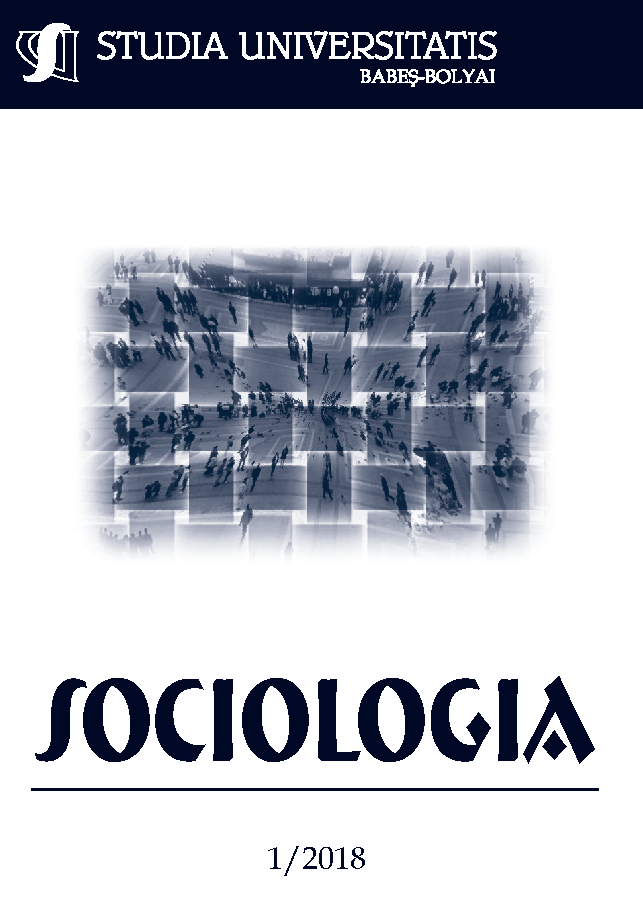STAGING SUSTAINABILITY AT EXPO 2000: GERMANY'S PANACEA FOR THE CRISES OF CAPITALISM
DOI:
https://doi.org/10.2478/subbs-2018-0002Keywords:
sustainability, Agenda 21, EXPO 2000, Germany, Birgit BreuelAbstract
This article explores how sustainability was staged in the context of EXPO 2000, the first and only world exhibition organized by Germany. The notion seemed to gain ground around the turn of the millennium in global political and policy circles, especially through such documents as the ‘Agenda 21’ and the ‘Millennium Development Goals’. These were also the main source of inspiration while organizing EXPO 2000, which, under the motto ‘Humankind, Nature, Technology’ claimed to put forward a radically different vision for the 21st century. However, throughout the paper I argue that sustainability ended up performing a quite different ideological function. In Germany, the staging of sustainability took place as an activation of expertize, meant to fix a crisis of the economy and to open up new grounds for capitalism’s search for profit, ultimately deepening the environmental crisis that it was meant to alleviate in the first place.References
Adorno, Theodor W., and Max Horkheimer. (1973). Dialectic of Enlightenment. London: Allen Lane.
Beck, Ulrich. (1999). EXPO 2000: Schöne neue Arbeitswelt: Vision: Weltbürgergesellschaft. 2 edition. Frankfurt/Main: Campus Verlag.
Beck, Ulrich. (2000). The Brave New World of Work. Cambridge: Polity Press.
Boltanski, Luc and Chiapello, Eve. (2005). The new spirit of capitalism. London; New York: Verso.
Breuel, Birgit. (1985). Alternativen zur klassischen Wirtschaftspolitik oder alternative Wirtschaftspolitik? am Donnerstag, d. 14. Februar, Mitteilungen des Übersee-Clubs, H. 2. Hamburg: Übersee-Club.
Breuel, Birgit. (1991). Arbeit der Treuhandanstalt: Rückschau und Perspektiven. Mitteilungen / Übersee-Club Hamburg, H. 6. Hamburg: Übersee-Club.
Breuel, Birgit. (1979). Den Amtsschimmel absatteln: weniger Bürokratie, mehr Bürgernähe. 1. Aufl. Düsseldorf, Wien: Econ-Verlag.
Breuel, Birgit. (1976). Es gibt kein Butterbrot umsonst: Gedanken zur Krise, d. Problemen u. Chancen unserer Wirtschaft. 1. Aufl. Düsseldorf, Wien: Econ-Verlag.
Breuel, Birgit. (1983). Perspektiven des Aufbruchs: aus Fehlern lernen. 1. Aufl. Econ-Forum. Düsseldorf Wien: Econ-Verlag.
Breuel, Birgit. (1994). Privatisierung Setzt Zukunftszeichen : [Der Vortrag Wurde Am 11. März 1994 Anlässlich Der Verleihung Der Bernhard-Harms-Medaille Im Institut Für Weltwirtschaft an Der Universität Kiel Gehalten] / von Birgit Breuel. Institut Für Weltwirtschaft an Der Universität Kiel. Kiel: Inst. für Weltwirtschaft.
Breuel, Birgit, and Hans-Jürgen Allert, eds. (1993). Treuhand intern: Tagebuch. Orig.-Ausg., 2. Aufl. Ullstein, Nr. 36614: Ullstein-Report. Frankfurt/M Berlin: Ullstein.
Breuel, Birgit. (1999). Agenda 21: Vision Nachhaltige Entwicklung. Frankfurt/Main: Campus Verlag.
Breuel, Birgit, and Michael C. Burda, eds. (2005). Ohne Historisches Vorbild: Die Treuhandanstalt 1990 Bis 1994: Eine Kritische Würdigung. 1. Aufl. Berlin: Bostelmann & Siebenhaar.
Breuel, Birgit, Rolf Fröhner, and Berufsverband Deutscher Markt- und Sozialforscher, eds. (1986). Marktforschung morgen - sind wir für die Zukunft gerüstet? die folgenden Vorträge wurden anlässlich des BVM-Kongresses 1986 am 2. und 3. Mai 1986 in Lüneburg gehalten. Vorträge zur Markt- und Sozialforschung, H. 12. Offenbach/M: BVM.
Clément, Gilles. (2015). ‘The Planetary Garden’ and Other Writings. Edited by Gilles A. Tiberghien. Translated by Sandra Morris. Tra edition. Philadelphia: University of Pennsylvania Press.
Dale, Gareth. (2002). More Shock than Therapy: Why There Has Been No ‘miracle’ in Eastern Germany. Socialism and Democracy 16 (2): 93–136.
Deimer, Josef. (1980). Antibürokratie: mehr Bürger als Untertan. Edited by Gerd Habermann. München: mvg.
Dörre, Klaus, Stephan Lessenich, and Hartmut Rosa. (2009). Soziologie - Kapitalismus - Kritik: eine Debatte. Suhrkamp.
EXPO 2000. (2000). Die weltweiten Projekte der EXPO 2000 / Projects around the world of EXPO 2000. 2 Bände. 1. edition. EXPO 2000 Hannover.
Fukuyama, Francis. (1992). The End of History and the Last Man. London: Penguin Books.
Gandy, Matthew. (2013). Entropy by Design: Gilles Clément, Parc Henri Matisse and the Limits to Avant-Garde Urbanism. International Journal of Urban and Regional Research 37 (1): 259–78.
Habermann, Gerd, and Josef Deimer, eds. (1980). Antibürokratie: mehr Bürger als Untertan. München: mvg.
Illich, Ivan. (2009). Energy and Equity. London; New York: Marion Boyrs.
Lovins, Amory, and Peter Hennicke. (1999). Voller Energie : Vision: Die globale Faktor-Vier-Strategie für Klimaschutz und Atomausstieg. New York : Campus-Verlag Frankfurt/Main.
Lyotard, Jean-Francois. (1992). The Postmodern Condition: A Report on Knowledge. Theory and History of Literature, v. 10. Manchester: Manchester University Press.
Meding, Conrad von. (2016). Soll Der Holländische Pavillon Abgerissen Werden? Hannoversche Allgemeine Zeitung, May 23. http://www.haz.de/Hannover/Aus-der-Stadt/Uebersicht/Niederlaendischer-Pavillon-der-Expo-2000-wird-zum-Risikofaktor.
“MVRDV - EXPO 2000.” (2017). http://www.mvrdv.nl/projects/expo. [Accessed September 10].
Offe, Claus. (1984). Contradictions of the Welfare State. Translated by John Keane. 1st MIT Press ed. Studies in Contemporary German Social Thought. Cambridge, Mass: MIT Press.
Donella H. Meadows, and Club of Rome, eds. (1972). The Limits to Growth: A Report for the Club of Rome’s Project on the Predicament of Mankind. London: Earth Island.
Prasad, Monica. (2006). The Politics of Free Markets: The Rise of Neoliberal Economic Policies in Britain, France, Germany, and the United States. Chicago: University of Chicago Press.
Schröder, Gerhard. (1992). Reden Zur EXPO 2000 von Gerhard Schröder. Presse- und Informationstelle der Niedersächsischen Landesregierung.
Downloads
Published
How to Cite
Issue
Section
License
Copyright (c) 2018 Studia Universitatis Babeș-Bolyai Sociologia

This work is licensed under a Creative Commons Attribution-NonCommercial-NoDerivatives 4.0 International License.



